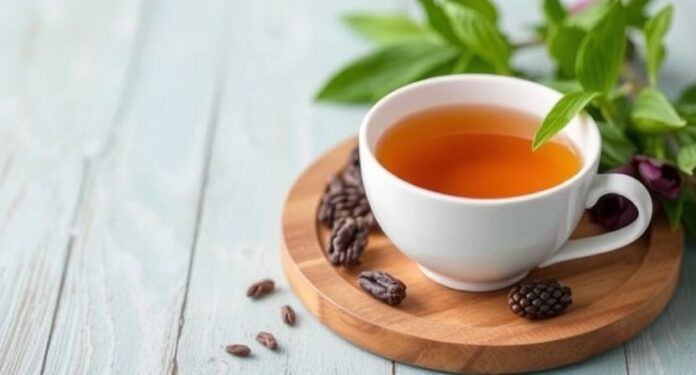I. Introduction to Weight-Loss Teas
What Are Weight-Loss Teas?
Weight-loss teas are specially formulated or natural teas believed to aid in weight management. These teas often contain ingredients that help boost metabolism, reduce appetite, or support fat burning. Common types of weight-loss teas include green tea, oolong tea, white tea, herbal teas, and blended teas with added functional ingredients like fruits or spices.
How Do Weight-Loss Teas Work?
Weight-loss teas work through several mechanisms in the body:
- Boosting Metabolism: Certain teas, such as green tea, contain catechins and caffeine, which have been shown to increase metabolic rate and fat oxidation.
- Suppressing Appetite: Herbal teas like peppermint or chamomile may help curb cravings by providing a sense of satiety.
- Promoting Fat Breakdown: Compounds in oolong and green tea can enhance fat breakdown and reduce fat storage.
- Aiding Digestion: Teas like ginger or fennel improve digestion and reduce bloating, which can indirectly aid weight loss.
Benefits of Drinking Weight-Loss Teas
- Support for Weight Loss: Teas can be a low-calorie beverage option that supports caloric control and fat metabolism.
- Improved Overall Health: Many teas are rich in antioxidants that combat oxidative stress and inflammation.
- Enhanced Metabolic Function: Ingredients like caffeine and catechins stimulate thermogenesis, aiding in calorie burning.
Important Considerations
- Dosage: Overconsumption can lead to side effects like jitteriness or digestive upset.
- Potential Side Effects: Some teas may cause issues such as dehydration or interactions with medications.
- Consulting Professionals: If you’re taking medications or have medical conditions, consult a healthcare provider before adding weight-loss teas to your routine.
II. Popular Types of Weight-Loss Teas
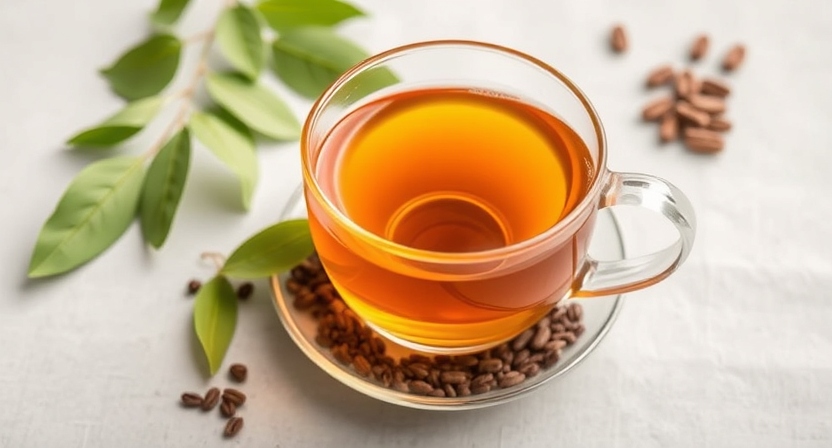
Green Tea
- Nutritional Components: Rich in catechins (especially EGCG), caffeine, and antioxidants.
- Weight-Loss Benefits: Green tea boosts metabolism and promotes fat oxidation. A study published in the American Journal of Clinical Nutrition showed that green tea extract increased calorie burn by 4% over 24 hours.
- Popular Varieties: Japanese matcha, sencha, Chinese longjing.
Oolong Tea
- Characteristics: Semi-fermented tea with a balance of green and black tea properties.
- Weight-Loss Effects: Oolong tea improves fat oxidation and helps regulate blood sugar levels. A study from The Chinese Journal of Integrative Medicine found that drinking oolong tea for six weeks significantly reduced body fat in participants.
- Famous Types: Tie Guan Yin, Da Hong Pao.
White Tea
- Composition and Benefits: Contains high levels of polyphenols that inhibit fat cell formation and stimulate fat breakdown.
- Weight-Loss Properties: It’s the least processed tea, retaining more natural compounds that promote weight management.
Rooibos Tea
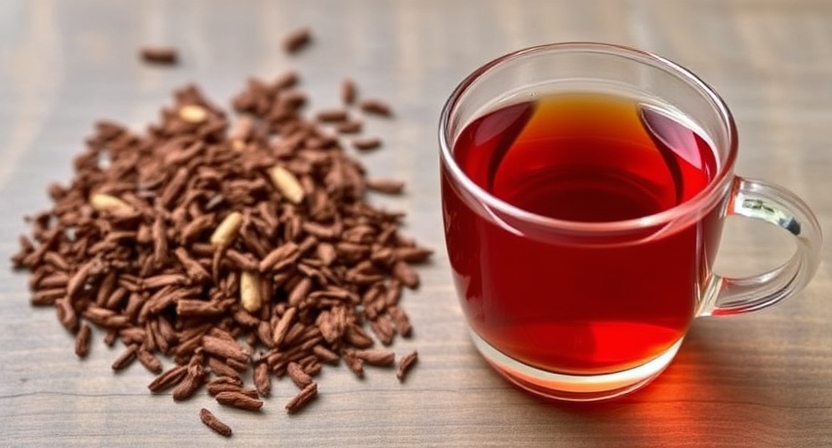
- Origin and Features: A caffeine-free herbal tea from South Africa, rich in antioxidants like aspalathin.
- Weight-Loss Advantages: Aspalathin has been linked to reduced fat storage and improved insulin sensitivity. Studies suggest that rooibos tea may help control hunger and prevent obesity-related conditions.
- Additional Benefits: Supports heart health and digestion.
Herbal Teas
- Examples: Ginger tea, peppermint tea, hibiscus tea, chamomile tea.
- Weight-Loss Effects:
- Ginger Tea: Boosts thermogenesis and reduces appetite.
- Peppermint Tea: Provides satiety and reduces cravings.
- Hibiscus Tea: Contains compounds that may inhibit fat accumulation.
- General Health Benefits: Herbal teas also offer calming effects, better digestion, and immune support.
Blended Teas
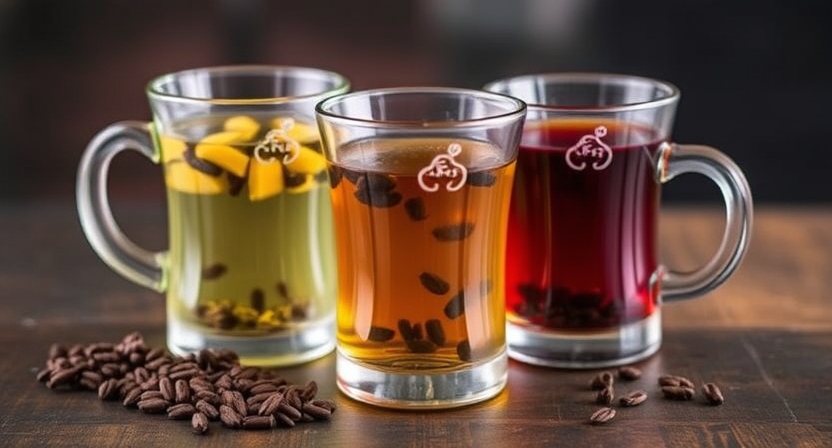
- Examples: Teas combined with fruit, spices, or functional ingredients (e.g., lemon, cinnamon, berries).
- Advantages: These blends enhance flavor and provide synergistic benefits for weight loss and overall wellness.
III. Comparing the Effectiveness of Different Weight-Loss Teas
Factors Affecting Weight-Loss Results
- Quality of Tea: Organic and high-quality teas are more potent.
- Dosage and Consistency: Regular consumption in appropriate amounts is key.
- Lifestyle Factors: Combining tea consumption with a balanced diet and exercise maximizes results.
Scientific Studies on Weight-Loss Teas
- Green Tea: A meta-analysis in Obesity Reviews found that green tea catechins significantly enhanced weight loss and weight maintenance.
- Oolong Tea: Clinical trials have shown that oolong tea increases fat oxidation and reduces belly fat.
- Rooibos Tea: Research in Phytomedicine highlighted rooibos tea’s ability to modulate fat metabolism and reduce adipogenesis.
Choosing the Best Tea for Your Goals
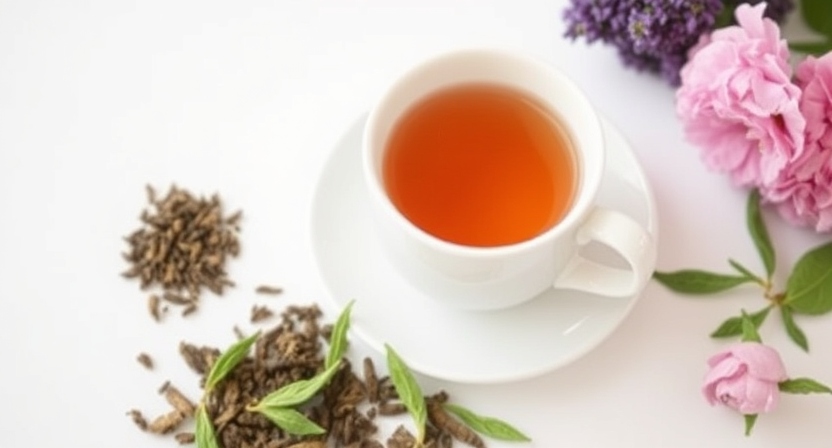
- For metabolism boost: Green tea or oolong tea.
- For appetite suppression: Herbal teas like peppermint or ginger.
- For overall wellness: Rooibos tea or blended teas with functional ingredients.
IV. How to Use Weight-Loss Teas Effectively
Brewing Methods

- Hot Brew: Steep the tea leaves in hot water (80°C–95°C) for 3-5 minutes.
- Cold Brew: Soak tea leaves in cold water for 6-12 hours to create a refreshing, nutrient-rich drink.
Optimal Timing for Consumption
- Morning: Kickstart metabolism with green or oolong tea.
- Midday: Enjoy herbal or white tea to curb appetite and sustain energy.
- Evening: Opt for caffeine-free teas like rooibos to relax and improve digestion.
Combining Tea with Diet and Exercise
- Diet: Pair tea with a nutrient-dense, calorie-controlled meal plan. Focus on lean proteins, whole grains, and vegetables.
- Exercise: Include aerobic activities and strength training for optimal fat burning.
Precautions with Medication
- Some teas may interact with medications (e.g., anticoagulants, blood pressure drugs). Always consult a doctor before introducing new teas if you’re on medication.
Summary
Weight-loss teas offer a natural, enjoyable way to support weight management. While they’re not a standalone solution, when combined with a healthy lifestyle, they can enhance results and improve overall health.
Recommendations
- Choose high-quality teas suited to your goals.
- Combine tea consumption with balanced nutrition and regular exercise.
- Consult with a healthcare professional if you have medical concerns.
Future of Weight-Loss Teas
As research evolves, new insights into the benefits of tea and innovative blends will continue to emerge, making them an exciting area of health and wellness exploration.


